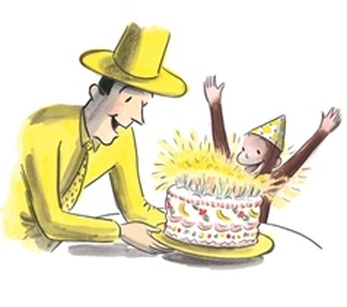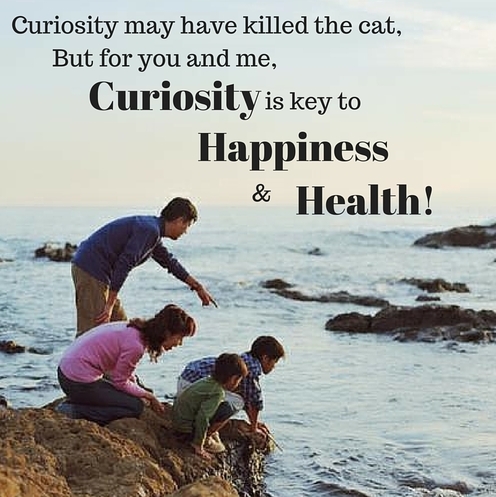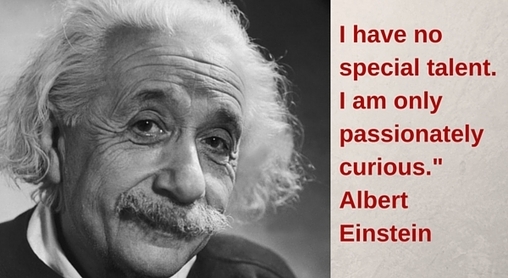Five Tips for Upping Your Curiosity Quotient and Why It Matters
 The century-old proverb, curiosity killed the cat, is usually dusted off and pronounced by an adult trying to hide something from a child.
The century-old proverb, curiosity killed the cat, is usually dusted off and pronounced by an adult trying to hide something from a child.Whether it's snicker-doodles in the cookie jar or a shameful family secret, the message is stop right there.
Story books about Curious George have been telling kids for 75-years--curiosity will get you in trouble. I'd rather see curiosity as fuel for the creative mind, a pathway to learning, a catalyst for change.
 I've always had a strong a need to know, which may have led to my career as a news reporter, and more recently, writing non-fiction for kids. Although, I must admit my curiosity has gotten me into trouble a time or two.
I've always had a strong a need to know, which may have led to my career as a news reporter, and more recently, writing non-fiction for kids. Although, I must admit my curiosity has gotten me into trouble a time or two.My quest for facts can go too far. It never served me well to grill my kids for information when they came home from school. And my husband’s not too keen on me interrupting him to ask questions.
Curiosity helps improve relationships,
reduce stress
and you find more
enjoyment in life
I've had to work at curbing my curiosity to become a better listener, and at the same time, redirecting my inquiries to understand more about myself. A subtle probing behind my actions and reactions has turned up a wealth of information about how I tick. Sharpening my curiosity helps me improve relationships, reduce stress and find more enjoyment in life.
I came up with this list of tips from my own practice. In my experience, cultivating a gentle curiosity contributes to better mental health and happiness. 5 Tips for Better Living Through Curiosity Be curious when somebody gets under your skin. Ask yourself what your reaction reveals about you. When we blame others, we lose options, we get stuck and feel powerless. When we ask questions, we gain options and the freedom to make new choices.
Be curious about your thoughts. Many of our thoughts are not true, but we go on believing them. Moment by moment we let our thoughts say terrible things about us, things we'd never say to a friend. Pause, investigate, acknowledge some of our thoughts are ridiculous, or just plain wrong. Being curious, seeing useless, hurtful thoughts for what they are helps us begin to let them go.
Be curious about your emotions. Exploring our feelings helps us act with more clarity and wisdom. Letting emotions like fear, anger and pain go unacknowledged creates hidden motives. It sounds backward, but understanding our feelings, actually helps us make more rational choices.
 Be curious about your everyday surroundings.Rushing through the same routine day after day we can miss the excitement of being alive. Endless mystery awaits our attention, genius even. Both Isaac Newton and Albert Einstein were sitting daydreaming when everyday sights sparked amazing ideas. Newton saw an apple fall from a tree, was curious, and discovered gravity and the laws of motion. Einstein saw a builder on the rooftop was curious what would happen if he fell, and extended his theory of relativity to gravity.
Be curious about your everyday surroundings.Rushing through the same routine day after day we can miss the excitement of being alive. Endless mystery awaits our attention, genius even. Both Isaac Newton and Albert Einstein were sitting daydreaming when everyday sights sparked amazing ideas. Newton saw an apple fall from a tree, was curious, and discovered gravity and the laws of motion. Einstein saw a builder on the rooftop was curious what would happen if he fell, and extended his theory of relativity to gravity. Be curious about other people.There's a theory we're hardwired to hang with people like us and feel threatened by those who look different, act different or believe different. Supposedly it goes back to the days of running around in bands protecting our food sources. But if we let go of our fear and our judgments open our minds to discovery, relationships become more complex, more interesting, more intimate. People are fascinating if we give them a chance.
Being curious is a requirement for my work as a writer, but we're all born curious, and we can all benefit from making a conscious effort to explore, learn and discover. So please share your tips for expanding curiosity in the comment section. Thanks!
Published on February 27, 2016 09:22
No comments have been added yet.



